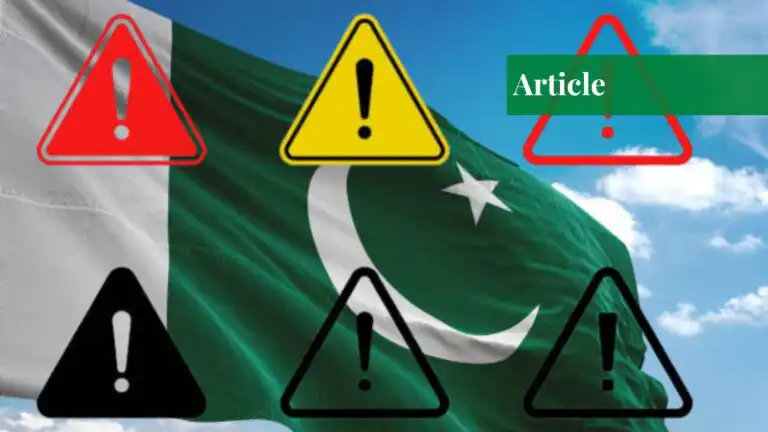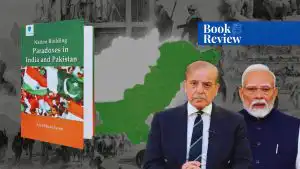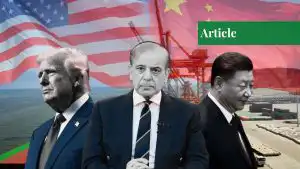Pakistan, a nation of over 220 million people, faces an unprecedented disunity and polarization crisis. The country is plagued by multiple fault lines, including provincial, political, religious, ethnic, linguistic, and educational divisions. This fragmentation has far-reaching consequences, affecting the country’s social fabric and economy, strength, progress, and integrity.
The Problem
The root causes of Pakistan’s disunity and polarization are complex and multifaceted:-
Lack of Effective Leadership
The absence of a strong, visionary leadership has allowed divisive forces to exploit the country’s fault lines.
Institutional Weaknesses
The erosion of institutional strength, particularly in the judiciary, electoral
commission, and anti-corruption agencies, has created an environment conducive to polarization.
Economic Disparities
Widening economic inequalities have fueled resentment and frustration among marginalized communities, making them vulnerable to divisive rhetoric.
External Interference
Pakistan’s strategic location and geopolitical significance have made it a target for external interference, exacerbating internal divisions.
Effects on Economy
The economic consequences of Pakistan’s disunity and polarization are severe:-
Investment and Growth
Political instability and social unrest have deterred foreign investment, hindered economic growth, and undermined the country’s competitiveness.
Human Capital
The brain drain of talented Pakistanis, frustrated with the country’s lack of opportunities and stability, has deprived the nation of its most valuable resource.
Resource Allocation
The diversion of resources to address security concerns and mitigate the effects of polarization has reduced essential public services such as education, healthcare, and infrastructure.
Effects on Strength and Integrity.
The impact of disunity and polarization on Pakistan’s strength and integrity is alarming:-
National Security
The fragmentation of society has compromised national security, as external forces exploit internal divisions to undermine the country’s stability.
Social Cohesion
The erosion of social cohesion has led to increased sectarian, ethnic, and linguistic tensions, threatening the very fabric of Pakistani society.
Global Reputation
Pakistan’s reputation as a stable, secure, and cohesive nation has suffered significantly, making it increasingly isolated globally.
Action Plan and Recommendations
To address the crisis of disunity and polarization, Pakistan needs a comprehensive, multi-pronged approach:
Promote Education and Critical Thinking
Invest in education, critical thinking, and media literacy to empower citizens to make informed decisions.
Foster National Unity
Encourage dialogue, tolerance, and inclusivity among different groups and promote a sense of shared national identity.
Strengthen Institutions
Ensure the independence and effectiveness of institutions, such as the judiciary, electoral commission, and anti-corruption agencies.
Address Economic Disparities
Implement policies to reduce economic inequality, promote social justice, and provide opportunities for all citizens.
Revive the National Action Plan (NAP)
Revisit and revitalize the NAP, which was introduced in 2014 to counter terrorism and extremism.
Encourage Critical Thinking and Media Literacy
Promote critical thinking and media literacy to combat misinformation and disinformation.
Foster a Culture of Tolerance and Inclusivity
Encourage interfaith dialogue, cultural exchange programs, and initiatives that promote tolerance and inclusivity.
Pakistan’s disunity and polarization threaten the nation’s integrity, economy, and strength. To address this crisis, Pakistan needs a comprehensive approach that promotes education, national unity, institutional strength, and economic equality. By working together, Pakistanis can overcome their nation’s challenges and build a more cohesive, resilient, and prosperous society.
If you want to submit your articles and/or research papers, please visit the Submissions page.
To stay updated with the latest jobs, CSS news, internships, scholarships, and current affairs articles, join our Community Forum!
The views and opinions expressed in this article/paper are the author’s own and do not necessarily reflect the editorial position of Paradigm Shift.
Major Taseer Ikram Rana (Retd) is a dedicated individual with a passion for knowledge. He served in the army from 1976 to 2001 and has read over 2000 books. He founded Loyal Warriors of Pakistan, which supports over 355,000 people, focusing on youth development and entrepreneurship. His mission is to promote service, progress, and respect, fighting against errorism.






